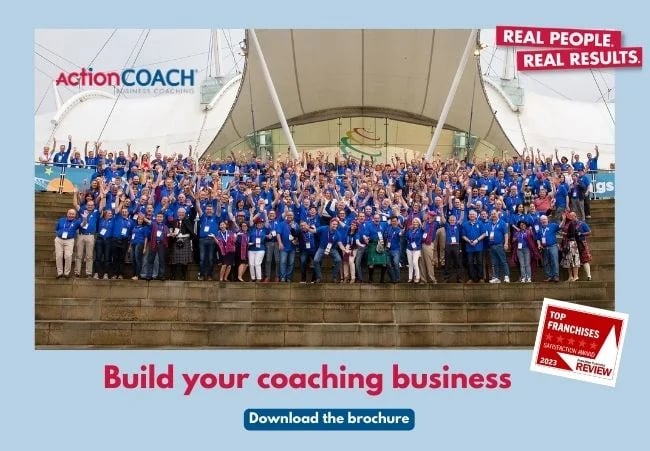A key facts sheet is a legal document given to franchisees. Find out exactly what a key facts sheet includes, when your franchisor needs to give you one, and how a key facts sheet can help you get the most out of your franchise opportunity.
Use the table of contents to quickly jump between sections.
What Is a Key Facts Sheet?
A key facts sheet is a document given by a franchisor to a prospective franchisee. It’s basically an easy-to-read snapshot of your franchise disclosure document. By reading the key facts sheet first, you can get the information you need without being ‘buried’ in the franchise disclosure document (which can be very long and complex).
Legally, a key facts sheet must say the same thing as your franchise disclosure document. If they say different things, you need to talk to your lawyer – the franchisor has either made a mistake or is being dishonest.
Key Facts Sheet Requirements
Key facts sheets are regulated by the Competition and Consumer (Industry Codes—Franchising) Regulation 2014 (Cth) (the Franchising Code of Conduct). As such, they need to be laid out in a certain way and contain certain information.
This information includes:
- About the franchisor:
- What is the franchisor’s name?
- How long have they been operating in Australia?
- Do they reasonably believe that they can pay their debts?
- Major disputes:
- Is the franchisor currently involved in any disclosable legal proceedings?
- Have they been subject to final civil judgements in the last five years, or been declared bankrupt or insolvent in the last 10 years?
- What percentage of franchisees were party to a mediation, conciliation or arbitration process in the last financial year?
- Current and past franchisees:
- How many franchisee-owned businesses are in the franchise system?
- How many franchisor-owned businesses are in the franchise system?
- The number of franchise events (transfer, termination, etc.) that occurred in the last three years
- Territory or site:
- Can you only operate on a particular site (limited to premises only)?
- Can you operate anywhere (no territory)?
- Do you have a defined territory (exclusive territory)?
- Do you have a defined territory with competition from other franchisees (non-exclusive territory)?
- Can the franchisor change the site or territory?
- Could you face competition from one or more businesses that sell goods or services that are substantially the same as yours, including via online sales?
- Can you sell goods or services of the same type or brand online?
- Does the franchisor have an interest in a lease that will be used for the operation of the franchised business?
- Supply of goods or services to the franchisee:
- Are there restrictions on your choice of suppliers?
- Does the franchisor have an interest in any supplier you might have to get goods or services from?
- Does the franchisor receive a rebate or other financial benefit from supplying goods or services to you?
- Operating costs:
- What, if any, payment does the franchisor require you to pay before signing a franchise agreement?
- What costs range can you expect when setting up your business?
- What are the recurring payments that you have to make to the franchisor?
- What other payments do you have to make?
- Marketing funds:
- Does you have to contribute to a marketing fund, and, if so, how is it calculated?
- Franchisor changes to agreement:
- Can the franchisor change the franchise agreement without your consent?
- Earnings:
- Does the franchise disclosure document include historical earnings data for the specific site/territory of the franchise business you are being offered?
- Does the franchise disclosure document include projected earnings information for the specific site/territory of the franchise business you are being offered?
- End of agreement:
- Which parts of the franchise agreement specify what happens when your agreement ends?
- How long will the franchise agreement last (unless it’s terminated early)?
- Can you renew the franchise agreement?
- Will the franchisor purchase your unsold stock, marketing material, equipment, and other assets when the agreement ends?
- Are you entitled to any compensation for goodwill in the business?
- Will you be subject to a restraint of trade or similar clauses?
You can read an official key facts sheet here.
When Should You Receive a Key Facts Sheet?
You should receive a key facts sheet at least 14 days before either of the following happens:
- You enter into a franchise agreement with the franchisor.
- You make a non-refundable payment to the franchisor or one of their associates in connection with the agreement.
If the franchisor hasn’t given you a key facts sheet – or gives it to you late – don’t feel pressured to sign anything. Get independent legal advice and make sure you fully understand everything about the franchise you’re buying.
When Should Your Key Facts Sheet Be Updated?
If you’re an existing franchisee, your franchisor must update your key facts sheet within four months after the end of each financial year. For example, if your franchise’s financial year ends on June 30, your franchisor is legally required to update your key facts sheet by October 30.
Keep in mind, though, that your franchisor doesn’t need to update your sheet if either of the following is true:
- Your franchisor only entered into one or fewer franchise agreements last financial year.
- Your franchisor doesn’t intend to enter into any franchise agreements in the upcoming financial year.
The good news: even if your franchisor doesn’t update your sheet, you can ask for an updated sheet every 12 months. They’re required to provide one to you within 14 days of your request (under most circumstances).
What Does a Key Facts Sheet Tell You?
A key facts sheet isn’t a replacement for reading your franchise disclosure document. Think of it more as a ‘quick guide’ – a way to spot red flags before you pay for legal advice.
If, for example, you saw that the franchisor had recently been bankrupt, or that a large number of franchisees had taken them to court, you might decide to look elsewhere. Maybe you think that your profits won’t outweigh the costs you’re required to pay – or maybe you don’t feel comfortable with the strict non-compete clause that your agreement contains.
If you like everything you see in your key facts sheet, the next step is to go over your franchise disclosure agreement in detail with your solicitor. They’ll be able to help you identify any issues and understand the legal jargon.
Alternatively, if you want advice about the business opportunity, talk to a consultant or coach (especially one that has experience with franchises). They can tell you what makes sense commercially and what doesn’t – and may be able to give you some helpful advice for dealing with your franchisor.
Want advice about the feasibility of a franchise opportunity?
The information contained on this page is general and informative in nature and should not be interpreted as advice of any kind. Do not make any business, legal or financial decisions based on this information. Always seek the advice of an appropriately qualified professional before engaging in any franchise-related activities.
April 20, 2023

